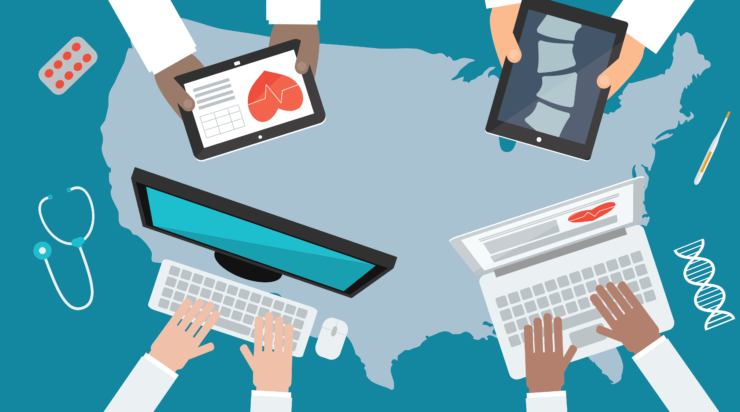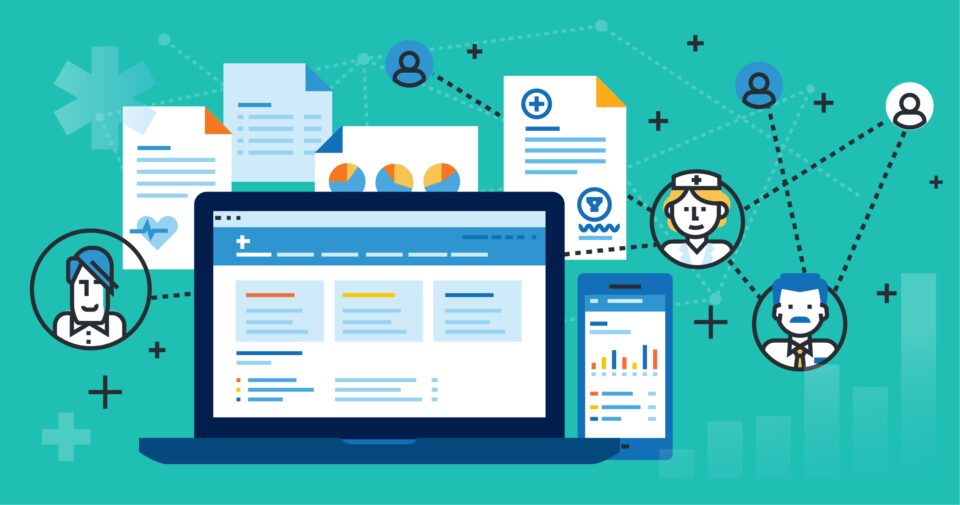Medical organizations have numerous opportunities with the explosive surge of healthcare provider data. Proper health data management enables them to obtain valuable insights, enhance preventive medicine, and offer superior patient care. Simultaneously, healthcare providers must ensure medical data’s precision, currency, and security. Health data management involves collecting, storing, retrieving, transferring, and safeguarding data.
It enables healthcare providers to evaluate and utilize medical information to discover actionable insights. It is only possible when you get the required data from reliable healthcare providers like careprecise.com. The healthcare provider data will be legit as they perform basic operations by contacting the patients for details.
Despite the growth of healthcare data, it only sometimes results in better patient outcomes. The data is often categorized regarding its location, format, and structure. This siloed approach makes it challenging for physicians to utilize the data meaningfully.
Efficient Ways To Maximize The Use Of Health Care Provider Data

Though there is plenty of digital health care data available online by health care providers, the efficient usage of it and storage properly is what needs to be improved in achieving the expected outcome. Here are a few tips and ways that you can employ to make the best use of the available data.
Consider Managing Data In A Responsible And Structured Manner
To store the information collected properly, it is necessary to establish a data governance strategy encompassing the procedures, tools, and personnel needed to gather, store, and safeguard every facet of the data. Consider following these guidelines:
- Organize and classify your file system to differentiate and label confidential personal health information (PHI).
- Monitor access rights for each user.
- Regularly remove outdated data.
- Assemble a team for data governance to stay informed of updates and regulations related to health IT at the federal level.
A carefully crafted governance strategy enables you to efficiently retrieve the required data and promptly adapt to regulatory modifications.
Keep Track Of The Quality Of Data

Mistakes and inaccuracies in healthcare records can lead to denying insurance claims, unnecessary diagnostic procedures, or inappropriate treatment. Employing solutions that can perform the following tasks is the most effective way to monitor the quality of data :
- Process of purifying and unifying data to conform to specific standards.
- Recognize and eliminate duplicate entries
- Authenticate manual input, rectify typing errors, and highlight inconsistencies or probable errors.
- Match data obtained from different sources.
AI technologies are the most efficient means to accomplish this task. Although they cannot complete missing data, they can identify them and alert clinicians to provide the necessary information.
Utilize Automation
According to research conducted by CAQH, a healthcare industry organization, the US medical sector has already saved $122 billion yearly by programming organizational operations. Further cost savings of up to $16 billion can be achieved by streamlining specific processes and transitioning to fully electronic transactions.
Digitalization is essential not only for cost reduction but also for enabling the effective management of healthcare data. Generally, a healthcare organization can benefit from diverse solutions, from medical billing and coding software to patient engagement systems.
Enhance Interoperability

Sophisticated healthcare information management is nearly impossible without interoperability, which refers to the ability of medical institutions to exchange, interpret, and use information seamlessly. Interoperability offers several advantages, including:
- Reduced requirement for redundant testing
- Fewer inadvertent treatment cases
- Fewer cases of miscommunication
Incorporating Fast Healthcare Interoperability Resources (FHIR), a standard open-source framework, can assist healthcare providers in organizing their health, financial, and workflow information. Various computer systems or applications can easily interpret well-structured information.
Storing The Available Health Care Information
Effective healthcare information management necessitates reliable information storage. Healthcare organizations can use on-premises or cloud-based solutions or a combination.
The scalability and interoperability of information vary on how you keep it. So here are a few healthcare information storage options and what they can offer:
Storage Area Networks
A Storage Area Network (SAN) is a high-speed network of storage devices that several servers or computers can access through dedicated fiber channel pipelines. SAN facilitates the direct transfer of medical images and information from storage to workstations without overburdening existing hospital servers. This will aid you in the following:
- Prevent latency problems.
- Alleviate bandwidth strain.
- Accelerate information transfer.
- Enhance systems across hospital divisions.
A SAN will operate optimally if a dedicated, private Ethernet network exists between the server and clients. This approach will keep file request traffic out of the fiber channel network and offer nearly real-time access to picture archiving and communication systems (PACS).
External Storage Mechanisms

According to statistics, 62% of mid to low-level hospitals utilize SSDs, tapes, and disks to store healthcare information such as electronic medical records (EMR), radiological images, and insurance claims. However, these convenient storage devices are vulnerable to cyber-attacks and must be encrypted to prevent security breaches.
Outsourced Storage Solutions
Storing large volumes of information on on-premise storage facilities can result in significant expenses for hardware and personnel costs. However, one way to reduce operating costs is by transitioning to off-site servers managed by other companies.
Statistics indicate that in 2021, 93% of hospitals considered outsourcing IT infrastructure and information centers, while 96% considered outsourcing information-based management and analytics. By outsourcing these services, healthcare organizations can leverage the expertise and resources of specialized providers and benefit from more cost-effective solutions.
Reducing costs is not the only reason healthcare institutions opt for outsourced storage solutions. Many vendors offer compliance with regulations such as HIPAA, HITECH, and PCI DSS, which can relieve hospitals of the burden of ensuring that PHI is protected and the risk of healthcare information breaches and associated fines is minimized.
Conclusion
In conclusion, managing healthcare provider data information effectively ensures patient data is protected and available for appropriate use. Healthcare organizations must carefully consider their information storage needs and select the right solutions based on performance, scalability, and compliance.
While on-premise storage facilities can offer control and customization, outsourcing to specialized vendors can provide cost savings and expertise in managing compliance.

